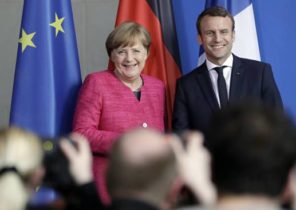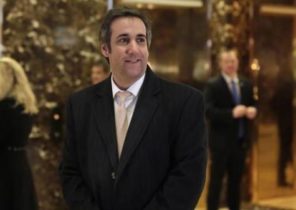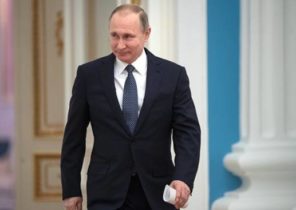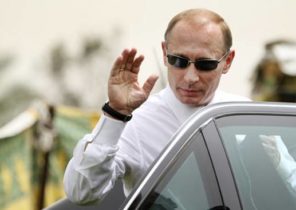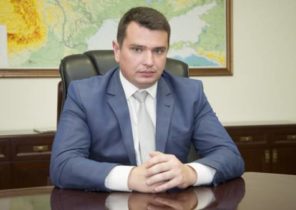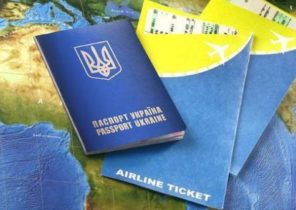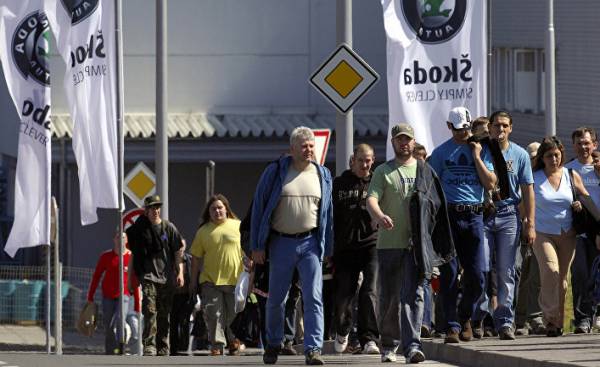
The loyalty of Czech exporters in Russia may bear fruit. So says Minister of industry and trade of the Czech Republic Jiri Havlicek (Jiří Havlíček). “Trade decreased, but gradually starts to grow again, although this trend should not be overestimated,” — says the head of the Ministry of industry. Another improvement is expected from the meeting of the Russian-Czech intergovernmental Commission to be held in late may in Moscow. Talking about industrial, scientific-technical and innovation cooperation. Also we will focus on the already discussed and brand-new projects.
E15: in the spring of 2014, between Russia and the European Union are mutual sanctions. What it led to, if judged from the perspective of 2017? He left there the Czechs with the Russian market?
Jiri Havlicek: the Results for 2016 show a significant reduction of mutual trade turnover in comparison with 2014, and thus the tendency to the suppression of economic exchange. If we turn to actual performance and to compare annual volumes in 2014 and 2016, it is clear: the decline of Czech exports to Russia reached 33.5% (equivalent of cron). The reduction of imports from Russia to the Czech Republic amounted to 35.3%, and we also note the reduction in the total turnover of 34.4%. In absolute numbers the loss in exports reach approximately of 37.8 billion crowns (when compared to exports in 2016 and 2014).
If we compare the indicators of bilateral trade in 2015 and 2016, the export ratio has declined in the kroon equivalent of 3.9%, imports fell by 20.5%, and the turnover decreased by 13.5%. A careful study of the decline in exports for the whole of 2016 is noticeable that in the second half of last year has achieved some positive results in this area.
In the first quarter of the current year we noted the growth of Czech exports in comparison with the same period in 2016. In kroon equivalent growth reached 26.5 percent. And while we should not overestimate this trend, continued growth expected in our exports in the second half of 2016, significantly.
I have cited data showing the fluctuations in the volume of mutual trade in the period from 2014 to the first quarter of 2017, lead to the conclusion that their influence not only sanctions, which at a certain period of time can be considered constant. The role played by other factors. General deterioration of the situation in the Russian economy is due primarily to the decline in energy prices on world markets.
Expressed Russian orientation on the production of energy and subsequent export, resulted in appreciable drop in the ruble. Positive upward trend in energy prices helps to improve the condition of the Russian economy, which is also reflected in the growth of our mutual trade turnover.
Anyway it is clear that the majority of Czech entrepreneurs have left the Russian market. And now it can bear fruit.
— What the Czechs do have the opportunities, chances and guarantees after the European Union, which we are a member, has imposed sanctions against Russia? The sanctions cover three areas: weapons, fossil fuel extraction and supply for the Russian industry and energy. That is, and can you talk about compensation when one trade direction compensates for damage in those areas which are prohibited?
The concept of sanctions was not so wide. Supply for the Russian industry and energy, with some exceptions, is still possible, however, only need to adapt to new conditions. In General due to the protectionist measures of the largest potential for cooperation is Russian, or Eurasian, production is not enough capacity or quality to satisfy its own market.
In such cases, business will always find a way, and the goods and services to their customers. But when local production holds a strong position in the domestic market, it is better to seek opportunities for cooperation on third markets. I am confident that Czech companies are able to find such opportunities.
Following the imposition of sanctions, Russia launched a program of import substitution, it is decided to replace import of own production. The domestic production of goods in Russia in great demand in the market. Czech exporters are able to fit into the model of cooperation with the partial transfer of production?
— A policy of import substitution in Russia began to discuss, and then and hold even during the global economic crisis after 2009. A clear signal of protectionist and isolationist tendencies in the Russian economy was the decree of the President of the Russian Federation of the sixth of August 2014 “On application of certain special economic measures to ensure security of the Russian Federation”.
Now the Russian economy is also a number of restrictions on public contracts, introduced more stringent requirements for certification, the practice of export restrictions and prohibitions. Thus, since 2014 trade with the Russian Federation in certain areas depends not only on the sanctions of the European Union, but also from the internal security rules established, for example, in the food industry and mechanical engineering.
However, for some of our exporters, the Russian market remains the main, therefore, the number of Czech companies, in spite of everything, decided to place its production in the Russian Federation to receive the status of the Russian manufacturer. And they succeeded. To successful in this sense, the examples we can classify the construction in the Samara region of a plant to manufacture spark plug company Brisk from the Camp. Last year, the plant supplies its products not only immediate automakers in Samara and Togliatti, but the entire Russian market.
Successful example of the work of the Czech company in Russia takes the firm Trimill of Vsetin, which was opened in Ulyanovsk region factory on manufacture of machining centers, as well as the company Škoda Auto, whose plants in Kaluga and Nizhny Novgorod. That is, the Czech exporters and investors, there are undoubtedly opportunities to succeed in the Russian market, but you need to comply with the current rules, especially the principle of localization.
— The locomotives of Eurasian economic Union (EEU) with its more than 180-million market are Kazakhstan, Russia and Belarus. As far as advice received during implementation of the order in one of these countries, valuable throughout the EAEU?
We, of course, look for the Eurasian integration processes with great interest. In the medium term we can expect a significant improvement of the conditions for the release of Czech companies on the market. I mean including the introduction of a unified customs tariff, unified methods of non-tariff regulation and unified system of certification of products. The EAEU could become a key link in the chain between Europe and the Asia-Pacific region.
On the other hand, the Eurasian integration project is opposed by strong competitors, particularly Chinese infrastructure and economic projects in the framework of the strategy of “One belt, one road” and economic problems in some member countries of the Union. The true viability of this in General ambitious project will show the coming years.
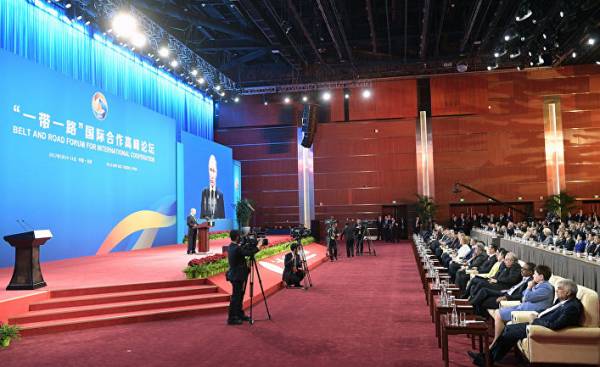 © RIA Novosti, Alexei Nikolsky | go to Photobacterium of the Russian Federation Vladimir Putin speaks at the opening ceremony of the International forum of “One belt, one road”
© RIA Novosti, Alexei Nikolsky | go to Photobacterium of the Russian Federation Vladimir Putin speaks at the opening ceremony of the International forum of “One belt, one road”
In mid-June, Kazakhstan will host the international exhibition “Expo-2017” with a focus on the energy sector. For the first time, a co-organizer of the business program will be Russia. It is expected a large Chinese delegation headed by the President. The number of countries participating in the exhibition Kazakhstan has entered the top five of the host countries. As far as the participation of the Czech Republic in this exhibition is important for the Czech business?
The Ministry of industry and trade has made great efforts for the participation of Czech companies in the exhibition in Astana. We believe the participation of the Czech Republic at “Expo-2017” is not only a question of prestige, but above all a unique opportunity to show itself before the international competition and to demonstrate the level of development of our energy industry in the region, where high demand for modern technology.
In the field of production and distribution of energy and power industry, we offer world a range of modern technological solutions, patents, the most advanced products and technology of compact complexes which can find application around the world. They are United by a good and thought-out technological solutions, so we’re going to “Expo-2017” in Astana with the national presentation of “Good decisions”.
I am very glad that our exposition will be visited by the President Milos Zeman (Miloš Zeman). Our pavilion will be divided into two parts. The main exposition is devoted to the unique Czech inventions, technological solutions and the most modern products of Czech companies. In Astana we will present a unique concept of a sports plane with an electric motor, the electric bus is a new generation, which used nanotechnology. We also present a power plant that produces energy at the disposal of ordinary municipal waste, and residential building, which itself produces energy and controls its flow. We have other good solutions.
We have also produced a lightweight game and part of the exhibition for children and their parents who will offer interactive exhibits on the theme of energy. Part of our exposition on the second floor of the Czech pavilion will be a tasting of dishes of national Czech cuisine.
I very much look forward to participating in “Expo-2107” and wish all of our exhibitors, the event to bring positive economic results.
— Do you plan to personally participate in the “Expo-2017” in Astana?
I’m going to visit Astana with a delegation of businessmen, which will also participate in one of the world’s largest machinery exhibition “Innoprom” in Yekaterinburg from 11 to 13 July. The second time the “Expo-2017” I want to visit in the second half of August along with a delegation of businessmen from the Chamber of the CIS countries.
— Do you agree that from the Czech point of view on the post-Soviet space dominated by the already mentioned Russia, Kazakhstan and Belarus?
— Judging by the volume of trade, value added in exports and overall potential, then Yes, it is.
— Could you briefly compare them, say, from the point of view of opportunities for Czech exports?
All these countries in Belarus, perhaps the most developed industry, if we take into account the share of this sector in GDP of the country. We have long been cooperating with Belarus, and our interaction does not copy the traditional model of “technology in exchange for raw materials”, which still prevailed in the case of the Russian Federation and Kazakhstan. Belarus is not rich in minerals, and there, on the contrary, always dominated by the manufacturing industry. Constant modernization and investment in innovation are playing for this country is literally a vital role, because different model of development for her is impossible.
Today Kazakhstan has the most stable economy of all three mentioned States. It bypassed all the major crises of the past 15 years, and over this time, Kazakhstan’s economy is showing more, less growth. The country has huge reserves of minerals, and more recently Kazakhstan focused on the development of the processing industry. And it opens great opportunities to our companies.
Russia, too, can rely on its resource base. But now, for various reasons, Russia faced serious problems, in particular, with a large territory, uneven population density, infrastructure, non-transparent market relations. These difficulties in turn are associated with low competitiveness and the need to invest heavily in defense. But in General, those aspects that have long characterized Russia.
But, anyway, the Russian market is always attractive from its size and diversity. Moreover, given the multi-vector economic orientation and long-standing ties with many neighbouring countries, Russia is very attractive from the point of view of the possible localization or production cooperation and subsequent release to the market of third countries. Without the assistance of Russian partners, our companies would probably be harder to go out there. In addition, as a rule, is the benefit of cooperation with firms of world class players, which Russia undoubtedly belongs.
From the point of view of the Czech economic interests of all three countries, however different they may be, have a lot in common. First of all, the needs of their economies literally unprecedented in common with the competitive advantages of Czech exporters. In addition, there is a long tradition of active trade cooperation. Czech products are enjoyed by consumers in these countries are in great demand, than in any other States outside the European Union.
And it is important that these markets typically provide the ability to export goods with a higher added value than in the EU. There can hardly count on the equipment of farms, industrial plants or power plants turnkey, but such projects in the conditions of constantly growing global competition to keep pace with technological progress in many areas.
All these are factors that should not be neglected and need to use them for the benefit of our economic interests. But, of course, on the other hand, don’t underestimate or even ignore the risks that have long been associated with these markets and impede the full use of their potential.
— Development of Czech-Kazakh trade relations? In both countries succeed, and what needs more work?
— As has been said, trade relations with this country for us to play an important role. Our relations are not burdened by past differences, and, from my point of view, nothing prevents them from intensive development. Kazakhstan is very significant for the energy security of our country. It is the third largest oil importer in the Czech Republic, and has the resources we need.
Our exports are concentrated primarily in the energy sector, automotive industry and engineering. Relative disadvantage is the significant remoteness of Kazakhstan, which reduces the intensity of contacts. And here I see the main reserve. The need to maintain mutual contacts, to enable firms to meet at different levels. I am convinced that, in view of all the foregoing factors of Czech and Kazakh entrepreneurs will always find a way to each other and run a variety of interesting projects.
— What would you say in this sense about Belarus? After the abolition of the greater part of EU sanctions in 2015, some European countries are considering Belarus as a gateway or springboard into the Eurasian market. Our mutual trade has grown until 2012, and for the past five years have seen a decline. What you discussed at the meeting of the Belarusian-Czech mixed Commission on economic, industrial and scientific-technical cooperation held in may in Prague?
— For the ninth session of the Belarusian-Czech mixed Commission took place at the Ministry of industry and trade, may 16-17. First and foremost, we discussed joint projects in energy, industry and food sector. The emphasis was on development of a General contractual framework, the cooperation of the chambers of Commerce of the two countries and, of course, the solution to the problem of the Belarusian debt to the Czech Republic.
At the end of may is planned the meeting of the intergovernmental Commission with Russia. Whether it will be held? What are the main issues of trade cooperation, which will discuss the members of the Commission, or on what projects and on what topics the Czech Republic wants to talk?
— I can confirm that the tenth meeting of the Russian-Czech intergovernmental Commission will be held on may 29-30 in Moscow. I will personally be present, because the co-chairs of the intergovernmental Commission are members of the government and the Czech side is Minister of industry and trade. The main themes of cooperation, which we are about to discuss relate mainly to industry, because the machines and vehicles make up 70% of our exports, as well as energy and agriculture. We’ll talk about scientific-technical and innovation cooperation, as well as on tourism. In addition, our countries see great potential in developing contacts at the international level.
For large projects, we are going to discuss those on which were discussed the last meeting of the Russian-Czech intergovernmental Commission in Prague. For example, the activities of companies TRIMILL Vsetín, Agrostroj Pelhřimov and Jihostroj Velešín. Of course, we will consider new projects, such as, for example, the project company BRISK Tábor. At the last meeting of the Russian-Czech intergovernmental Commission we have raised the vexing question concerning the problematic of Czech projects in the Russian Federation, and are now going to continue the discussion. I can say that in some cases we have managed, including through the work of the Russian-Czech intergovernmental Commission, to make progress.


